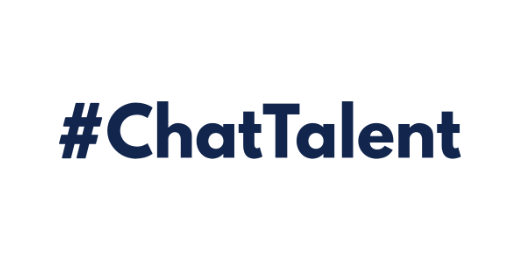Here’s a question for you.
Should we start rewarding candidates for their time, the same way we reward employees theirs?
Yes, you read it right. Paying candidates to explore our companies and engage in conversations with our recruiters and hiring managers. I understand that this idea will ruffle some feathers, but bare with me. In our current candidate driven market CPH (cost per hire) ranges anywhere between 2K-5K aren’t out of the ordinary.
Not to mention agency fees that can run up to anywhere between 10-20K per placement for specialist roles. Why wouldn’t some of that money flow directly into candidates’ pockets, if this speeds up the hiring process and delivers better quality?
“Alright Stan”, you say. “So you are essentially telling us to bribe candidates? Where does that leave you and all your previous talk about leading with our brands and culture to attract people that want to give, rather than take, huh?”
I’ve asked myself that question and have come to the conclusion that rewarding candidates doesn’t have to hurt that objective, if you ask the right things in return. And that’s where it gets interesting, because the way I look at it, when you reward candidates, you can ask much more of them during the recruitment process, than when you don’t.
Things that can benefit hiring quality, candidate pipeline creation, employer branding and even direct business objectives. Let me explain through these examples addressing how it would work for three different target audiences.
HOW WE COULD START REWARDING CANDIDATES AND WHAT TO ASK IN RETURN
-
Software engineers – Collaborative Coding
- Create a 3 hour online coding test
- Allow engineers to apply online by sharing their CVs/profiles
- You select the ones that seem interesting enough to participate
- The minute the engineers finish their test £500 gets transferred to their bank account
- You select the best performing engineers to come by the office for a day of interviews, tours and co-creation sessions with some of their possible future colleagues
- Another £1000 gets transferred to the engineers that show up and stay the whole day
Reimbursing engineers for their time and effort justifies the time and thought they have to put into the assessment process.
Not only will it provide you with a much deeper understanding of their skills, it will also allow you to showcase your brand, culture, employees, and way of working in a much more elaborate way than a traditional recruitment process.
This in turn will help both you, your hiring managers, and the candidates to make far better informed hiring decisions. Not to mention the business value you can derive from the collaborative coding sessions.
-
Graduates – Grads on the beach
- Organise a paid weekend trip to Ibiza for a group of graduates matching your budget and hiring need
- Allow graduates to apply online by sharing why they believe they deserve to be there, in any way and through any medium they like
- Select the best submissions
- Bring a group of your own sophomores (last years graduates) and some hiring managers as well
- Plan various group activities during the weekend, make them free to attend for the graduates, but mandatory for you colleagues
- Offer the attending graduates £150 allowance to spend any way they like
Now this is a social experiment, if there ever was one. Will the graduates hang out with your sophomores and hiring managers, trying to get to know them? Will they be interested in learning about your company? Or are they just there for the holiday? Will they participate in any of the group activities?
These activities themselves will offer a ton of assessment and team building opportunities if you set them up the right way, allowing everyone to determine whether they think they would match in a working environment.
This is great on its own. But now imagine what impact the initiative will have on your talent attraction effort from an employer branding perspective, as the selected graduates and their friends will be blowing up social media with posts of their experiences, reaching thousands of their peers.
-
Sales Professionals – The Pitchathon
- Promote an event for sales professionals to improve the way your company sells its products and/or services
- Require sales professionals to send in a video elevator pitch explaining why they should be selected to join
- The selected sales professionals receive information about your companies products and/or services, and current sales enablement content (like pitch-decks, case studies proposals, etc)
- During the event the sales professionals work individually and together to create new growth strategies and pitches (you could even choose to include actual cases of prospects that are about to be pitched)
- Sales professionals pounds that show up and stay the whole day receive £ 750
- The top 3 strategies/pitches receive 4K, 2K and 1K respectively (you know how sales people love a bit of competition)
At this point you’re probably starting to get my drift right? An event like this creates an unparalleled opportunity to assess key skills, characters and behavior patterns of the sales reps, showcase yourself as a potential employer, while also producing a ton of invaluable ideas to help you tackle relevant business challenges.
Not to mention the gold mine of employer branding material you can capture and use during the day, as well as for future hiring purposes.
A NEW WAY OF LOOKING AT CANDIDATES
I’d like to finish with a great point my highly respected industry peer and fellow marketer Simon McLoughlin dropped at the recent TruManchester event. He said that in order for any of the above to come into fruition, employers need to change their mindsets from viewing candidates as commodities, to viewing them as assets.
Let that sink in for a second. The moment most employers start viewing people as assets for their companies, is after their employment contract is signed, or even later, after they’ve been onboarded for example. Before that they are usually viewed as a liability, purely a cost center.
That’s why we hear a lot of talk about ‘cost per applicant’, but we’ve never heard anyone talk about ‘profit per applicant’.
Maybe it’s time we start doing it…
But hey, I’m just throwing the idea out there and asking. As always, I’m looking forward to hearing your thoughts.






